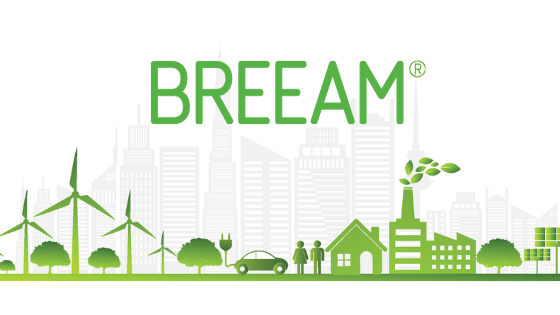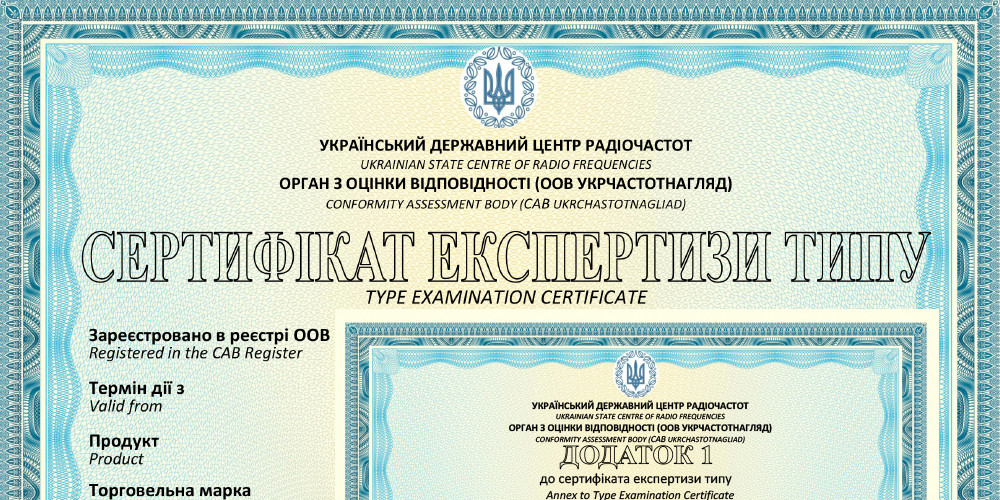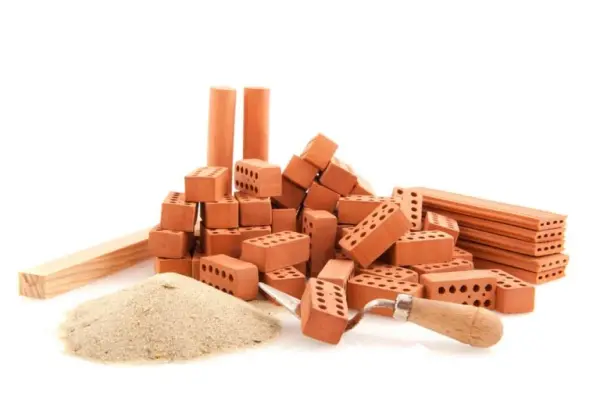Confirmation of conformity for construction materials has become a critical process in the modern construction industry. According to industry experts, tens of thousands of construction products are certified annually worldwide, with the average cost of the procedure ranging from $400 to $5,000, depending on the complexity of the tests. The system for confirming the conformity of construction products ensures the safety and quality of materials at construction sites.
It should be noted that the certification of construction materials not only guarantees compliance with technical requirements but also increases consumer trust in the products.
The procedure for confirming the conformity of construction materials includes both mandatory and voluntary assessments. While the process may seem complex, it is highly effective with proper preparation. Can one imagine construction without quality guarantees? Laboratory testing of construction materials is conducted in accredited centers, where specialists verify the product's compliance with established quality and safety standards.
System for Assessing the Conformity of Construction Materials
 The assessment of construction materials' conformity is a comprehensive process for verifying product quality. In practice, working with private clients often reveals cases where substandard materials lead to serious issues at construction sites. Mandatory certification of construction products applies to materials that impact the safety of structures.
The assessment of construction materials' conformity is a comprehensive process for verifying product quality. In practice, working with private clients often reveals cases where substandard materials lead to serious issues at construction sites. Mandatory certification of construction products applies to materials that impact the safety of structures.
"Quality certification is like a solid foundation for the entire building: without it, constructing a safe and durable structure is impossible."
Voluntary certification of construction materials allows manufacturers to confirm additional product characteristics. The procedure is like a medical examination for a building—it identifies hidden issues at an early stage. Permitting documents for construction materials are determined according to a unified list of products subject to certification.
Certification schemes for construction products vary depending on the type of material and its intended use.
Environmental Certification and Sanitary-Epidemiological Requirements
 The modern assessment system includes environmental aspects of construction material certification. In international practice, hygienic safety documents confirm the absence of harmful emissions from materials. An expert opinion for construction materials is issued when mandatory certification requirements are absent.
The modern assessment system includes environmental aspects of construction material certification. In international practice, hygienic safety documents confirm the absence of harmful emissions from materials. An expert opinion for construction materials is issued when mandatory certification requirements are absent.
LEED and BREEAM standards set requirements for the environmental performance of materials, including the content of volatile organic compounds and the carbon footprint of production. Radiological control is applied to natural materials in cases of exceeding background radiation levels.
Fire Safety and Technical Regulations
 Fire certification of construction materials is regulated by national technical fire safety regulations. In one project last season, we encountered a situation where the absence of a fire certificate led to a three-week construction halt. Time is money in construction.
Fire certification of construction materials is regulated by national technical fire safety regulations. In one project last season, we encountered a situation where the absence of a fire certificate led to a three-week construction halt. Time is money in construction.
The test protocol for construction products must include results of fire resistance and other safety characteristic checks.
It is known that materials used for evacuation routes require mandatory certification under national fire safety standards. A declaration of conformity for construction materials can serve as an alternative to certification for certain product categories. How to choose the right certification path? An accredited certification body conducts tests according to approved methodologies.
| Material Type | Document Type | Validity Period | Cost ($) |
|---|---|---|---|
| Portland Cement | Certificate of Conformity | 3 years | 800-1200 |
| Window Units | Declaration of Conformity | 5 years | 400-600 |
| Mineral Insulations | Fire Certificate | 5 years | 1000-1500 |
| Paints and Coatings | Hygienic Certificate + Declaration | Indefinite/3 years | 600-900 |
| Construction Mixtures | Declaration + Protocol | 3 years | 500-800 |
Differences Between Document Types
The presented table illustrates the main types of permitting documents for construction materials and their characteristics. A certificate of conformity is issued for high-risk products. A declaration is used for materials of standard application, and hygienic certificates are required for chemical compositions.
A refusal letter for construction products confirms the absence of mandatory certification requirements. This information helps manufacturers and suppliers choose the optimal conformity confirmation option. Construction materials subject to certification are determined by each country’s national standards.
Risks of Using Non-Certified Materials in Construction
 Using materials without appropriate documentation entails serious consequences. Fines vary by jurisdiction and can range from $1,000 to $100,000 per violation. Construction halts and demolition of completed work are also possible.
Using materials without appropriate documentation entails serious consequences. Fines vary by jurisdiction and can range from $1,000 to $100,000 per violation. Construction halts and demolition of completed work are also possible.
The issue of counterfeit products remains relevant—expert estimates suggest a significant portion of construction materials on various markets have fake or invalid certificates. In practice, I often notice contractors attempting to save on certification, only to incur much greater losses. Verifying document authenticity through official registries and QR codes has become a mandatory practice.
Global Standards and Certification Norms
International certification standards vary by region and country. ASTM International develops global standards for materials, applied in 140 countries worldwide. It includes over 12,000 standards for the construction industry.
Thus, these international standards, developed by the organization since 1898, are used not only by American but also global manufacturers.
"The construction of One Penn 1 in New York, costing $2.7 billion, became an example of successful certification application. The use of aluminum panels certified under ASTM E84 and paints with ISO 14024 enabled $150 million in tax incentives and increased project profitability by 8%."
The European Union applies a unified CE marking for construction materials. Inspection control of construction material production is conducted regularly to maintain quality. Various jurisdictions have similar documentation systems for hygienic safety.
Considering the structural characteristics of different regions, material requirements can significantly vary.
In one recent project, we discovered that a certificate valid in Europe was unsuitable for the U.S. market due to differences in testing standards. Voluntary certification of construction materials often helps resolve such compatibility issues.
Certification Features in Ukraine
 In Ukraine, the system for confirming the conformity of construction materials is regulated by national legislation and building codes. The procedure includes the evaluation of technical documentation. Sample selection and testing in accredited laboratories complete the first stage.
In Ukraine, the system for confirming the conformity of construction materials is regulated by national legislation and building codes. The procedure includes the evaluation of technical documentation. Sample selection and testing in accredited laboratories complete the first stage.
Technical specifications for construction materials are developed in accordance with national standards.
The Ukrainian certification system is adapting to European standards. The procedure for confirming the conformity of construction materials typically takes 30 to 90 days, depending on the complexity of the tests.
In practice, I often notice that Ukrainian manufacturers strive to obtain certificates compliant with European standards to expand export opportunities. This helps secure a certificate for construction materials recognized in EU countries.
Step-by-Step Certification Algorithm
Stages of the Certification Procedure
The main stages of conformity confirmation include several key phases. Submitting an application to an accredited body initiates the certification process. Can the procedure be expedited?
Analysis of technical documentation determines the required scope of testing.
- Submission of an application and technical documentation to the certification body
- Selection of product samples for laboratory testing
- Conducting tests in an accredited laboratory
- Production analysis (if necessary)
- Issuance of a certificate of conformity or declaration
For successful certification, it is recommended to prepare a complete set of documents in advance and select an accredited laboratory with experience in your field. The cost of certifying construction materials pays off in the first contracts.
Laboratory tests include checks of mechanical, physicochemical, and environmental characteristics. The NIST laboratory accreditation program for construction material testing has been in place since the late 1970s and covers testing of concrete, aggregates, cement, geotextiles, and other materials. Quality is like a fingerprint—unique to each material.
The cost of certifying construction materials ranges from $400 to $5,000, depending on the complexity of the tests. The timeframe for obtaining a certificate for construction materials typically ranges from 2 to 12 weeks. Where to obtain a declaration of conformity for construction materials? At any accredited certification body.
"Properly conducted certification saves time and money at all construction stages, preventing costly rework and legal disputes."
Documentation and Quality Control
The test protocol serves as the basis for issuing a certificate of conformity. The document contains the results of all conducted checks and a conclusion on the product’s compliance with established requirements. In one recent project, an improperly formatted protocol caused a one-month delay.
The quality control system includes regular production inspections. Inspection control of construction material production is conducted at least once a year.
It should be noted that a certificate remains valid only if all production conditions specified in the technical regulations are met. Changes in material composition or production technology require recertification. But this is not bureaucracy—it’s a commitment to safety.
The validity period of documents ranges from 1 year to indefinite. Technical specifications for construction materials typically remain valid until revised or canceled.
Digitization of Certification Processes
 Modern technologies significantly simplify certification procedures. Electronic application systems reduce document processing time. Where to order certification of construction products online?
Modern technologies significantly simplify certification procedures. Electronic application systems reduce document processing time. Where to order certification of construction products online?
Digital test protocols provide quick access to results and enhance process transparency.
Blockchain technologies are beginning to be used to protect against certificate forgery. QR codes on packaging allow instant verification of document authenticity. Certification schemes for construction products are adapting to digital realities.
Artificial intelligence helps analyze large volumes of test data and identify potential issues.
Confirmation of conformity for construction materials remains the foundation of safe and high-quality construction. Properly formatted documents protect both manufacturers and consumers, ensuring compliance with all safety and quality requirements in the construction industry. The declaration of conformity for construction materials becomes a reliable tool for developing international trade in construction materials.

